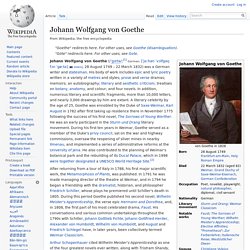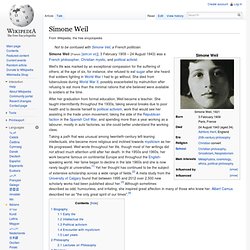

Grand Unified Theory. A Grand Unified Theory (GUT) is a model in particle physics in which at high energy, the three gauge interactions of the Standard Model which define the electromagnetic, weak, and strong interactions, are merged into one single interaction characterized by one larger gauge symmetry and thus one unified coupling constant. During the grand unification epoch, the gauge force separated from the gravitational force. Models that do not unify all interactions using one simple Lie group as the gauge symmetry, but do so using semisimple groups, can exhibit similar properties and are sometimes referred to as Grand Unified Theories as well. Unifying gravity with the other three interactions would provide a theory of everything (TOE), rather than a GUT. Nevertheless, GUTs are often seen as an intermediate step towards a TOE. History[edit] Motivation[edit] Unification of matter particles[edit] Schematic representation of fermions and bosons in SU(5) GUT showing 5+10 split in the multiplets.
SU(5)[edit] If. Johann Wolfgang von Goethe. After returning from a tour of Italy in 1788, his first major scientific work, the Metamorphosis of Plants, was published.

In 1791 he was made managing director of the theatre at Weimar, and in 1794 he began a friendship with the dramatist, historian, and philosopher Friedrich Schiller, whose plays he premiered until Schiller's death in 1805. During this period Goethe published his second novel, Wilhelm Meister's Apprenticeship, the verse epic Hermann and Dorothea, and, in 1808, the first part of his most celebrated drama, Faust.
His conversations and various common undertakings throughout the 1790s with Schiller, Johann Gottlieb Fichte, Johann Gottfried Herder, Alexander von Humboldt, Wilhelm von Humboldt, and August and Friedrich Schlegel have, in later years, been collectively termed Weimar Classicism. Biography[edit] Early life[edit] Goethe's father, Johann Caspar Goethe, lived with his family in a large house in Frankfurt, then an Imperial Free City of the Holy Roman Empire. Goethe. Stephen, King of England. Stephen (c. 1092/6 – 25 October 1154), often referred to as Stephen of Blois (Old French: Estienne de Blois), was a grandson of William the Conqueror.
He was King of England from 1135 to his death, and also the Count of Boulogne in right of his wife. Stephen's reign was marked by the Anarchy, a civil war with his cousin and rival, the Empress Matilda. He was succeeded by Matilda's son, Henry II, the first of the Angevin kings. Stephen was born in the County of Blois in middle France; his father, Count Stephen-Henry, died while Stephen was still young, and he was brought up by his mother, Adela. Placed into the court of his uncle, Henry I, Stephen rose in prominence and was granted extensive lands. Stephen became increasingly concerned with ensuring that his son Eustace would inherit his throne after him. Early life (1096–1135)[edit] Childhood[edit] Northern France around the time of Stephen's birth Relationship with Henry I[edit] The White Ship and succession[edit] Simone Weil. Simone Weil (French: [simɔn vɛj]; 3 February 1909 – 24 August 1943) was a French philosopher, Christian mystic, and political activist.

Weil's life was marked by an exceptional compassion for the suffering of others; at the age of six, for instance, she refused to eat sugar after she heard that soldiers fighting in World War I had to go without. She died from tuberculosis during World War II, possibly exacerbated by malnutrition after refusing to eat more than the minimal rations that she believed were available to soldiers at the time. Taking a path that was unusual among twentieth-century left-leaning intellectuals, she became more religious and inclined towards mysticism as her life progressed. Weil wrote throughout her life, though most of her writings did not attract much attention until after her death. In the 1950s and 1960s, her work became famous on continental Europe and throughout the English-speaking world. Biography[edit] Simone Weil at age 13. Early life[edit] Leon Trotsky.